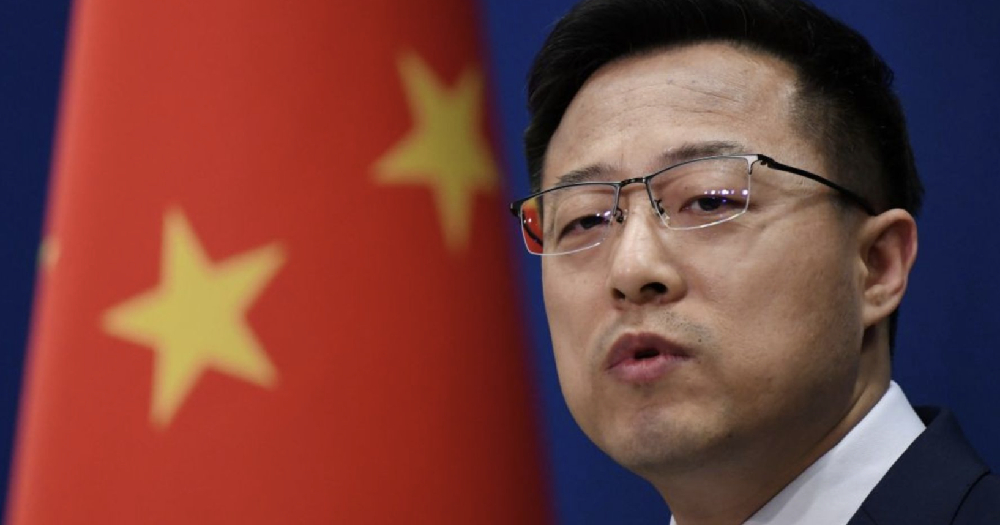A group of Chinese experts have warned the country against catering to domestic online sentiments in its efforts to communicate with foreign audiences.
Risky to allow domestic voices to influence global communications
At an event held on July 14 by Beijing-based think tank the Center for China and Globalization (CCG), the experts said in telling China's story to the world, the country's diplomats, experts or scholars have to be mindful of the tide of populist sentiments at home, Caixin Global reported.
This is because narratives catering to domestic online voices don't really resonate with foreign audiences.
The experts also pointed out the irony that in trying to accommodate domestic sentiments while communicating with foreign audiences, the intended target audience becomes vague, making it difficult to tell whether the message is meant for a domestic or foreign audience.
According to Lianhe Zaobao, Chu Yin, a professor at the Beijing-based University of International Relations, said that such a phenomenon of taking into account domestic sentiments when crafting its global narrative has "led to the country's global communication strategy only impacting domestic audiences, despite huge funding being poured into such efforts".
He added that such "internalisation", along with the proliferation of the internet, has caused "global communication efforts to fall into populism".
"Some experts and diplomats have lowered their professional standards to cater to online sentiment," Caixin Global reported him as saying.
He added, "This has led to bad results, making the idea of 'telling China's story well' a hostage to domestic online sentiment."
Shou Huisheng, a researcher at Beijing Language and Culture University, further pointed out that China currently adopts a top-down approach in telling its stories, which he argued was impeding effective dialogue with other countries.
Xi wants China to tell lovely stories about itself
China has launched various initiatives to improve its global communications, including roping in English-speaking influencers in the UK to share their positive stories on China.
Chinese President Xi Jinping has urged the country's media outlets and senior party leaders on more than one occasion to "tell China's stories well", saying on May 31 that the country has to revamp its communication style and project a "lovable" image of itself in order to "expand its circle of friends".
This directive can be taken to suggest that Xi is instructing the country's representatives to show greater restraint when it comes to their communications with foreign audiences.
China has faced criticisms for its "wolf warrior" style of diplomacy, which is a form of assertive and antagonistic approach that's frequently employed by its diplomats to defend the country.
These diplomats make use of social media that's banned within China, such as Twitter, to push China's official narrative to global audiences.
China says it's simply defending itself from attacks
China has defended itself against such accusations of aggressive messaging, with Chinese foreign ministry spokesperson Hua Chunying saying that the country is simply fighting back against "wolf-like attacks" on trumped-up charges.
China has faced accusations of human rights abuses in Xinjiang, cracking down on Hong Kong's autonomy and disregarding its promise to keep the territory's special privileges for 50 years, making increased frequency of incursions into Taiwan's air zone using its military aircraft, as well as covering up the origins of Covid-19, among many others.
Nevertheless, there appears to be some sort of attempt to salvage CCP's image overseas.
Although Xi mentioned in his speech on July 1 -- the occasion of the Chinese Communist Party's (CCP) 100th anniversary -- that foreign powers would have "their heads cracked and blood spilled" if they try to "bully, oppress or enslave" China, the English translation of his speech provided by the official state-run media Xinhua made no mention of the gory imagery the original speech conjured.
Instead, the translation said that those who bully China will "find themselves on a collision course with a great wall of steel forged by over 1.4 billion Chinese people".
CCP wary of online voices spilling over to physical demonstrations in real life
Nationalism can be a double-edged sword in China that could help amplify the party's messaging on one hand, and perhaps even distract from greater domestic problems brewing in the background.
At the same time, it could also backfire on the party should it get out of control.
This is because it could potentially challenge the CCP, especially if it's seen as not being assertive enough in its foreign policy when it comes to protecting China’s interests.
This is perhaps why authorities had put a stop to physical demonstrations, which were a result of online nationalistic sentiments being taken offline.
For instance, security forces promptly escorted a Chinese woman out of the premises after she stood outside a H&M store and held up a sign that called for its boycott, in a display of patriotism towards her country against Western forces, which are trying to smear China's name.
https://twitter.com/tangjingyuan99/status/1375111394517979138
Read more:
Top image via Greg Baker/AFP/Getty Images
If you like what you read, follow us on Facebook, Instagram, Twitter and Telegram to get the latest updates.
